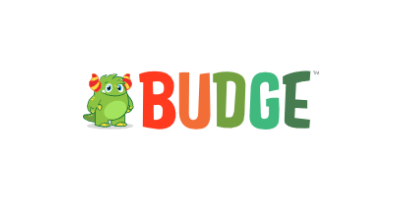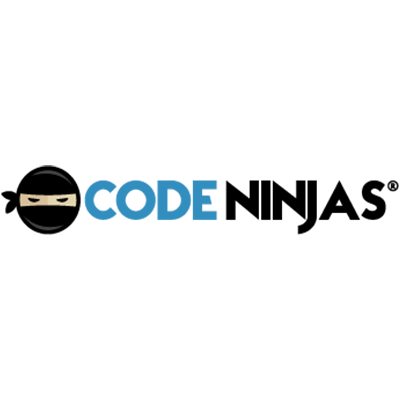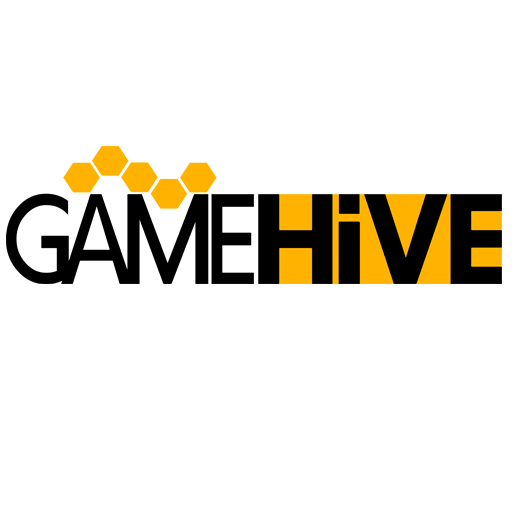Video Game Design & Development Diploma Program
Working video game creators will teach you the entire game development process for console, PC, and mobile.
Program
New Term Starts Soon
Program Description
Learn Video Game Development From Real Game Creators
Ace the game creation process from concept to production. Learn to design and program your video games in a simulated studio environment. Work alongside driven peers and accomplished game creators.
Network with industry professionals inside and outside the classroom. Develop a complete portfolio of work that showcases your know-how to prospective employers. Graduate confident that you can score that dream job with one of the country’s AAA gaming studios.
Career Outcomes for Video Game Development Graduates
Game Play Programmer
Game AI Programmer
Game Network Programmer
Quality Assurance Tester
Game Designer
Project Manager
Program Director & Instructor Bios
Student Success
Companies that Hire Our Grads
Video Game Courses
Our Game Design & Development Courses by Term
Term 1
Digital Drawing 1
VGC101
Digital Drawing 1 introduces students to the fundamental concepts of 2D art creation for games. Students will learn how to create traditional art and transfer it into digital formats for use in games. Specific topics include: line and form, perspective, and texturing and shading in both traditional and digital mediums. Students will apply knowledge gained in this course to conceptualize and develop concept art used in games.
Game Modelling 1
VGC102
Game Modelling 1 introduces students to the fundamental concepts of 3D modelling. Students will explore 3D software and tools, which will facilitate development of 3D game assets. Specific topics include: high and low-polygon modelling, 3D geometry and hard surface creation. Students will apply knowledge gained in this course to conceptualize and develop 3D assets used in games.
Principles of Art and Design
VGC103
The elements and principles of design are the building blocks to create effective and functional visuals. This course introduces students to art and design principles applied to games, with an emphasis on color theory and letter typography. Specific topics include color theory, color wheels, space, form, and fonts.
Scripting for Games
VGC104
Scripting for Games introduces students to scripting and problem solving. Students will script the basics of conditional structures, iterative structures and other control structures through the usage of a procedural scripting language. Topics include: loops, functions and if statements.
Programming Logic
VGC105
Programming Logic introduces students to the fundamental building blocks of programming. Students will identify the basics of control structures which will assist in solving programming problems for games. Topics include: variables, iteration, and game loops.
Game Platforms 1
VGC106
Game Platforms 1 introduces students to visual game engines used to develop cross-platform games. Students will combine a variety of art skills and techniques to develop an original game. Specific topics include: asset importing, game logic integration, and game deployment.
History of Video Games
VGC107
History of Video Games presents a historical survey of video games to modern times. Insights into the game industry will be made with identification of past, present and future games and their social and cultural impacts. Specific topics include: game technology, violence in games, and gender within games.
Introduction to the Video Game Industry
VGC108
This course will analyze local and international gaming markets. Specific topics include: analysis of game development centres in the world, identification of roles and responsibilities of game departments, corporate structures and game studio organization hierarchies.
Term 2
Game Testing and Debugging
VGP121
Game Testing & Debugging introduces students to game testing for quality control. Students will analyze techniques used to test games for defects and identify solutions to remove bugs. Topics include: test automation, UI testing and performance optimization.
Programming Fundamentals 1
VGP122
Programming Fundamentals 1 introduces students to object-oriented programming by interpreting OO paradigms and organizing objects using the Unified Modeling Language (UML). Topics include: abstraction, inheritance, and polymorphism.
Cross Platform Programming 1
VGP123
Cross-Platform Programming 1 will extend students’ knowledge of cross-platform technologies by using a game engine. Students will develop games for multiple platforms by using a program which generates games for a variety of hardware devices. Topics include: game logic, events, and device controls
Mathematics for Game Programmers 1
VGP124
Mathematics for Game Programmers 1 is designed to prepare students for mathematical calculations used to manipulate 2D and 3D graphics. Students will analyze linear algebra formulae and how they apply to 3D graphics. Topics include: matrix and vector operations.
Game Design 1
VGC121
Game Design 1 will introduce students to the principles of game design and mechanics. Students will examine game genres by analyzing common game mechanics and elements. Topics include: game genres, game mechanics, and gameplay elements.
Game Production and Pipeline
VGC122
Game Production & Pipeline will introduce students to methodologies and development best practices for game production. Through the analysis of game design documentation, students will establish development pipelines best suited for 2D and 3D games. Topics include: asset management, waterfall development, agile and SCRUM production methodologies.
Term 3
Programming Fundamentals 2
VGP141
Programming Fundamentals 2 introduces students to concepts in organizational and structured game programming, using data structures and design patterns. Students will apply data structures and design patterns into the game development cycle. Topics include: lists, trees, and graphs.
Cross-Platform Programming 2
VGP142
Cross-Platform Programming 2 will introduce students to 3D cross-platform technologies used to create multi-platform games. Students will develop games for multiple platforms by using a program which generates games for a variety of hardware devices. Topics include: 3D environments and objects, and event systems.
Mathematics for Game Programmers 2
VGP143
Mathematics for Game Programmers 2 is designed to prepare students for mathematical calculations used to manipulate physics within games. Students will explore calculus techniques to understand and calculate the fundamentals of motion. Topics include: derivatives and integration.
Physics for Game Programmers 1
VGP144
Physics for Game Programmers 1 introduces students to the fundamental concepts of Newtonian physics. Students will use a physics engine to apply physics and view the results of simulated motion. Topics include: collision, motion and projectiles.
Game Frameworks 1
VGP145
Game Frameworks 1 will apply students’ knowledge of 3D engines and development to produce a game in a team setting. Students will design and develop a game by applying project management techniques and development pipelines.
Game Design 2
VGC141
Game Design 2 introduces students to the theory and practise of level design for games. Students will examine layouts and blueprints for levels through the usage of a level editor. Topics include: golden paths, navigation and world building.
Game Business
VGC142
Game Business introduces students to the business operations of a game studio. Students will analyze business models and how they apply to the game industry. Topics will include: business models, game marketing and budgeting games.
Term 4
Graphics Programming 1
VGP201
Graphics Programming 1 examines graphics engine libraries used to create 3D, virtual reality and augmented reality virtual environments. Students will categorize the various techniques used to import 3D models into an interactive environment. Topics include: real-time graphics rendering, object transformations and graphics optimization.
Mobile Game Development 1
VGP202
Mobile Game Development 1 will introduce students to native game development for a mobile device. Students will learn how to develop, test and publishing a mobile game through an app store. Topics include: mobile APIs, provisioning and publishing.
Physics for Game Programmers 2
VGP203
Physics for Game Programmers 2 introduces students to the fundamental concepts of kinematics. Students will use a physics engine to apply physics and view the results in a simulated environment. Topics include: forward and inverse kinematics, and joints.
Game Frameworks 2
VGP204
Game Frameworks 2 will apply students’ knowledge of 3D engines and development to produce a game in a team setting. Students will design and develop a game by using a commercial engine and applying project management techniques and development pipelines.
Game Design 3
VGC201
Game Design 3 extends students’ knowledge of level design by analyzing feedback systems. Students will integrate reward systems and narrative through the usage of visual scripting and level editors. Topics include: scripted events, feedback loops and cinematics.
Game Audio 1
VGC202
Game Audio 1 will introduce students to technology and tools for game audio development. Students will learn how to design and generate sound effects that can be integrated into games. Topics include: synthesizing, looping, and fading.
Game Portfolio 1
VGC203
Game Portfolio 1 will introduce students to portfolio development for the game industry. Students will learn how to assemble employment material based on industry standards and expectations. Topics include: resumes, interviewing and cover letters.
Term 5
Graphics Programming 2
VGP221
Graphics Programming 2 extends the students’ knowledge of graphics programming by exploring advances techniques in virtual reality game development. Students will develop graphics and generate photorealistic simulations applied to games. Topics include: culling, space partitioning and quad-trees.
Mobile Game Development 2
VGP222
Mobile Game Development 2 will extend students’ knowledge of mobile development by producing virtual reality and augmented reality games for mobile devices. Students will develop and test mobile games, while learning device APIs, provisioning and publishing.
Physics for Game Programmers 3
VGP223
Physics for Game Programmers 3 extends students’ knowledge of physics by analyzing the physics of solids. Students will use a physics engine to apply physics and view the results in a simulated environment. Topics include: ballistics, heat conduction and explosions.
Game Frameworks 3
VGP224
Game Frameworks 3 will apply students’ knowledge of 3D engines and development to produce a game in a team setting. Students will design and develop a game by using a commercial engine and applying project management techniques and development pipelines.
AI Game Programming
VGP225
AI Game Programming introduces students to artificial intelligence algorithms for games. Students will learn techniques used to develop autonomous systems for games. Topics include: path finding, autonomous decision making and finite state machines.
Game Design 4
VGC221
Game Design 4 will extend students’ knowledge of game design by introducing story writing and storyboarding. Students will examine the structure of a story and how to visualize and adapt stories for games. Topics include: linear and non-linear storytelling, plots and character development.
Game Audio 2
VGC222
Game Audio 2 will introduce students to composing music for games. Students will learn audio tools used to generate ambient music or game soundtracks. Topics include: music composition, sampling and sound filtering.
Game Portfolio 2
VGC223
Game Portfolio 2 will allow students to develop their portfolio with the guidance and mentorship of faculty. Students will use proper procedures for presenting their portfolio on the web and other mediums. Topics include: static rendering, presenting and showcasing portfolios.
Term 6
Team Production Project
VGP 241
This capstone course allows students to operate as a game studio and design and develop a game as a team. Students will apply knowledge gained in past terms to produce a game following development phases. In addition, students will showcase their final game to an audience.
Game Portfolio 3
VGC 242
This course will allow students to finalize development of their portfolio by integrating their games into a professional demo reel. Students will use video editing tools to present their portfolio. Topics include: demo reel assembly and editing.
Admissions
Our Admissions Process Made Easy
1
Complete Toronto Film School’s online application form.
2
Pay the application fee of $150.
3
Provide original or notarized translated academic transcripts.
4
Submit a 300-500-word essay on why you want to attend Toronto Film School and your career goals for the video game industry.
5
Provide proof of English-language proficiency (international students only).
6
Provide a copy of your passport (international students only).
Please note: Applicants need to have completed a Grade 11 math course or math camp. Grade 11 courses in physics and computers/digital media are recommended.
For a more in-depth breakdown of the admissions steps, please visit the Requirements page.
Video Game Design & Development Program Tuition
Program Rates
Rate per Term
Number of Terms
Total Tuition
Domestic: $6,616 - $6,483
6
Domestic: $37,063
International: $9,792
6
International: $60,328
Tuition Fees do not include books, expendable supplies, equipment and resources.
FREQUENTLY ASKED QUESTIONS
What are the prerequisites for enrolling in the Video Game Design & Development Diploma program?
To be eligible for this program, applicants must have completed a Grade 11 math course or math camp. We also recommend courses in Grade 11 physics and computers/digital media. Here are the additional admission steps:
– Submit an online application form.
– Pay the application fee ($150 for most on-campus programs).
– Provide original or notarized translated academic transcripts. You must have an Ontario Secondary School Diploma (OSSD) or equivalent.
– Submit additional requirements specific to your program of choice.
– International students must provide proof of English-language proficiency and a copy of their passport.
Lastly, we ask for a 300-500 word essay detailing your reasons for wanting to attend Toronto Film School and your career aspirations in the video game industry. We’ll be assessing your overall understanding of the industry, and how you envision building a gaming career.
Get in touch with us today, and one of our admissions advisors will ensure this is a quick and easy process for you!
Why should I choose this program?
Choosing the Video Game Design & Development program at Toronto Film School means you’re opting for an education that is tailored to the demands of today’s gaming industry.
Our curriculum blends essential game design principles with detailed technical learning to produce graduates who are truly industry ready.
Here’s what sets our Video Game Design & Development program apart:
1. Our Professors are Practitioners:
Learn from industry-active design professionals who bring real-world insights straight to the classroom.
2. Our Campus is a Networking Hub:
We understand that building professional relationships is crucial to your success in the creative world.
That’s why this program is jam-packed with networking events and collaborative opportunities.
3. We Take a Future-Forward Approach:
Benefit from a cutting-edge curriculum that marries classic video game design principles with the latest digital tools.
4. You’ll Participate in an Industry-Replicating Capstone Project:
Our program concludes with a capstone project that mimics the dynamics of a real-life game studio. Similar to an internship, this hands-on experience preps you for tackling real-world video game design assignments post-graduation.
What career opportunities are available for graduates of the Video Game Design & Development program?
Toronto Film School opens a world of opportunities for graduates of the Video Game Design & Development program. Picture yourself as a Game Developer, Systems Designer, Level Designer, Game Tester, or even a Project Manager.
You could find opportunities in game development studios, software publishing houses, computer systems design firms, or even as a freelance consultant. Through this program, you will acquire the necessary skills to capitalize on career opportunities within the gaming industry.
What kind of software and equipment do I need for TFS’s Video Game Design & Development Diploma Program?
As an aspiring game developer, you’ll need a computer with a robust graphics card, substantial RAM, and a fast processor. On the software front, you’ll be dealing with programming languages such as C# or C++, and working with game engines like Unity or Unreal Engine.
You might also need graphic design tools like Adobe Photoshop and 3D modelling applications such as Blender or Maya.
Don’t worry if you’re starting from scratch as we’ll guide you through all the necessary steps!
What is the duration of this diploma program?
The program is divided into six terms and takes 18 months to complete.
Is financial aid available for the Video Game Design & Development program?
We recognize that financing your creative education can be challenging. For help, check out Toronto Film School’s bursaries and government financial aid options:
Canada Student Loans and Grants
Apply for loans or grants via your home province or territory. Loans generally have no interest during study and require payments only post-graduation. Grants, which are not repaid, are usually offered to students from low to middle-income families, those with disabilities or dependents, or part-time students.
Ontario Student Assistance Programs (OSAP)
If you are an Ontario resident, you can apply to OSAP for a student loan or grant. This financial assistance can also help you to cover basic living expenses, supplies, tuition, and books. Here’s a link to apply!
Student Assistance Programs for All Other Provinces
You can find a list of all student aid offices through the Government of Canada website.
Bursaries
Toronto Film School offers several bursary options. For a complete list, check out this link.
Do I need a portfolio to apply to the Video Game Design & Development program?
No, you are not required to submit a portfolio when applying to the Video Game Design & Development program.
Are there any internship opportunities for Video Game Design & Development program students?
The program’s director, J.P. Amore, and Video Game Design & Animation program director Rob Elsworthy, have been able to provide internships through external partnerships they have formed with the school.
Many of our students also land internships on their own, leveraging the skills and knowledge gained from our programs to stand out to employers.
Our Career Services team equip students with the top strategies for finding work in their areas of expertise by providing resume and cover letter review, interview skills coaching, networking strategies, online profile optimization techniques, and much more.
In addition, in the final term of our program students engage in a “Team Production Project” course that replicates real-world industry experience. It’s not a traditional internship, but it’s certainly a career-building endeavour.


The Toronto Film School Blog
Explore the latest industry news, student profiles, alumni success stories, event reports and content specific to your career interests.


















